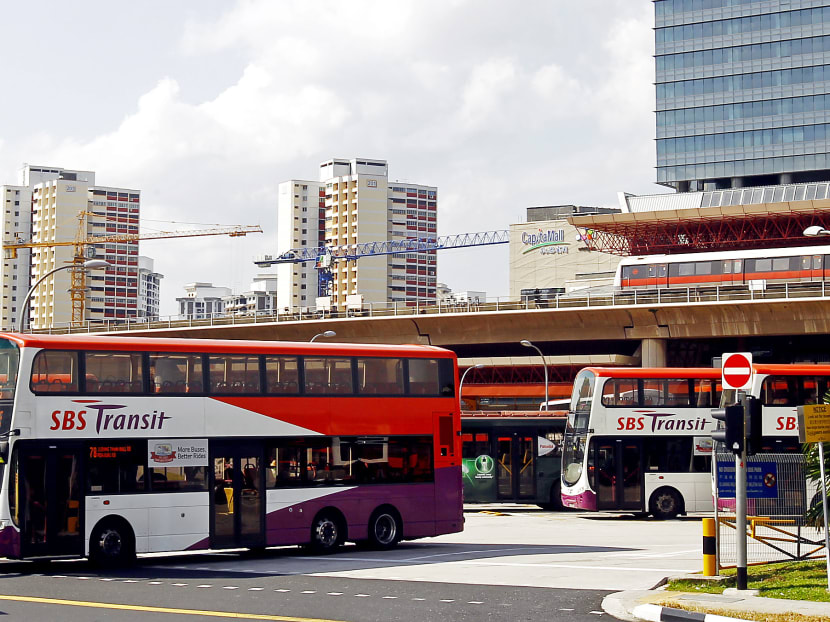Khaw signals that transport fares will go up in future
SINGAPORE — Taxpayers have been increasingly subsidising the higher operating costs of the public transport network, a situation that is not sustainable going forward, Transport Minister Khaw Boon Wan said on Wednesday (March 8) as he asked commuters to be “understanding” when fares have to go up.
SINGAPORE — Taxpayers have been increasingly subsidising the higher operating costs of the public transport network, a situation that is not sustainable going forward, Transport Minister Khaw Boon Wan said on Wednesday (March 8) as he asked commuters to be “understanding” when fares have to go up.
Although the Government would continue subsidising public transport heavily, in the long term, a balance must be found for the fiscal burden to be borne by commuters, taxpayers and operators, he added.
The Public Transport Council (PTC) would be reviewing the fare formula, set to expire after the 2017 fare exercise, Mr Khaw said in Parliament during the debate on his ministry’s budget.
“But, remember, the PTC cannot always bring good news, sometimes they have to adjust fares upwards. And when they do, I hope commuters will be understanding.”
In his speech, he also laid out the projected higher investments and expenditure for the public transportation network in the years ahead.
The Government expects to subsidise public bus services by close to S$4 billion over the next five years under the new Bus Contracting Model, where it is responsible for buying and replacing buses.
Another S$4 billion is expected to go into replacing rail assets under the transition to the New Rail Financing Framework, on top of the S$20 billion it is spending on building new public transport infrastructure.
Fare revenue, Mr Khaw said, is not enough to cover operating costs, which incurs a huge deficit. In earlier years, taxpayers were funding the construction of transport infrastructure, and commuters bore the operating costs through transport fares.
“But over the years as fares have not kept up with rising costs, taxpayers have to subsidise more and more of the operating costs, especially as we have been raising service standards significantly. This is clearly not sustainable,” he added.
In its financial-year (FY) 2016 report, rail operator SMRT’s operating expenses increased by 5.4 per cent to S$1.2 billion, compared with the year before when it was $1.17 billion.
Passenger revenue was $929.5 million, up from $892.14 million in FY2015.
Operating expenses for bus company SBS Transit similarly increased, from $930 million in FY2014, to S$998 million in FY2015. Fare revenue for buses — from contactless cards and cash — was $620 million in FY2014, and $645 million in FY2015.
Commenting on the possible increased spending, transport analyst Park Byung Joon, senior lecturer at SIM University, said that operating costs would go up even further with the new model, due to the intent of offering better service levels to commuters.
“The service levels we are getting now are higher, which cost more to run. Better public transport does not come cheap,” he said.
Assistant Professor Terence Fan, a transport expert at the Singapore Management University, said that operating costs for the Government should at least stay the same as compared to the old model, due to more competitive bidding expected under the new model.
He added, however, that while there is the financial impact of changing to the new bus contracting model, it should not be a reason to raise prices. Having said that, the Government has been putting in a lot more new buses under the new model in order to improve services, “so there’s a cost to that”, he explained.







